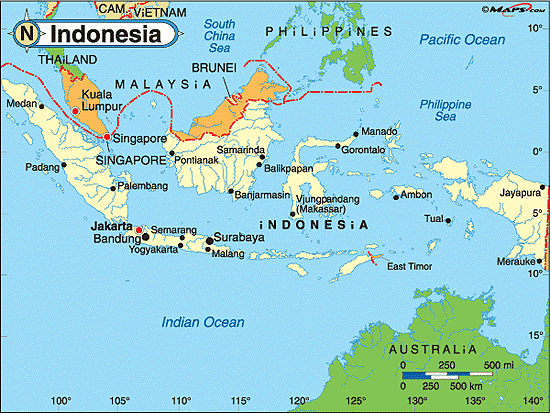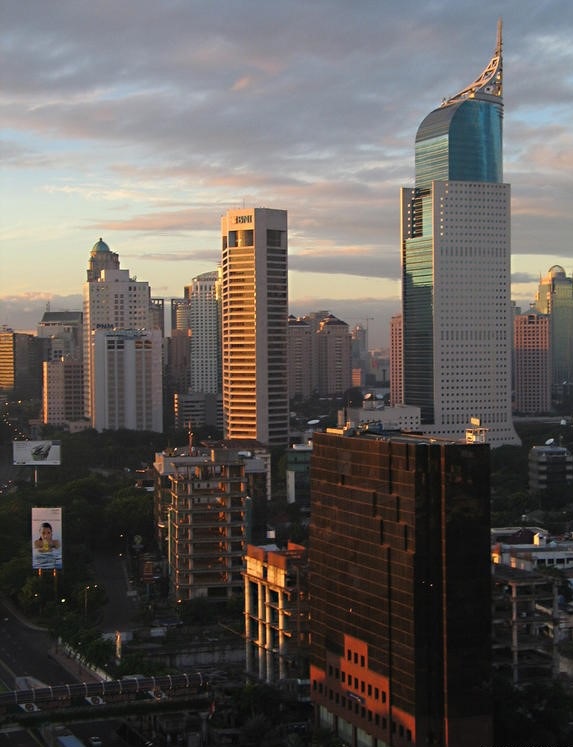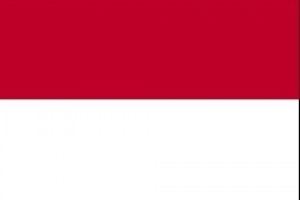Indonesia
Republic of Indonesia is a sovereign state in Southeast Asia and Oceania. The nation's capital city is Jakarta. Indonesia is an archipelago comprising thousands of islands. Fossilized remains of Homo erectus and his tools, popularly known as the "Java Man", suggest the Indonesian archipelago was inhabited by at least 1.5 million years ago. With an estimated population of over 252 million people, making it the world's fourth most populous country. Indonesia's republican form of government comprises an elected legislature and president. The country shares land borders with Malaysia and other neighboring countries include Singapore, the Philippines, Australia, Palau, and the Indian territory of the Andaman and Nicobar Islands.

The area of Indonesia is populated by peoples of various migrations, creating a diversity of cultures, ethnicities, and languages . In Indonesia official language is Indonesian and the Currency is Indonesian rupiah.
Indonesia like much of Southeast Asia was influenced by Indian culture. When Indian traders arrived on the islands of Sumatra, Java and Sulawesi, bringing their religion. Hinduism of Shaivite traditions started to develop in Java in the fifth century AD. The traders also established Buddhism in Indonesia. Today, it has the largest Muslim population in the world. Although Muslim traders first traveled through South East Asia early in the Islamic era, the spread of Islam among the inhabitants of the Indonesian archipelago dates to the 13th century in northern Sumatra; other Indonesian areas gradually adopted Islam which became the dominant religion in Java and Sumatra by the end of the 16th century. For the most part, Islam overlaid and mixed with existing cultural and religious influences. Only Bali retained a Hindu majority.
The Indonesian Constitution guarantees freedom of religion. However, the government only recognizes six official religions (Islam, Protestantism, Catholicism, Hinduism, Buddhism and Confucianism) there are non-official religions in Indonesia. Indonesia does not recognize agnosticism or atheism, and blasphemy is illegal. In the 2010 Indonesian census, 87.18% of Indonesians identified themselves as Muslim .
By the turn of the 20th century, nationalist stirring, brought about by nearly three centuries of oppressive colonial rule, began to challenge the Dutch presence in Indonesia. A four-year guerrilla war led by nationalists against the Dutch on Java after World War II, along with successful diplomatic maneuverings abroad, helped bring about independence. The Republic of Indonesia, officially proclaimed on August 17th, 1945, gained sovereignty four years later.

During the first two decades of independence, the republic was dominated by the charismatic figure of Sukarno, one of the early nationalists who had been imprisoned by the Dutch. General (ret.) Soeharto eased Sukarno from power in 1967. Indonesia's economy was sustained throughout the 1970's, almost exclusively by oil export.
The Asian financial crisis, which broke out in mid-1997, paralyzed the Indonesian economy with the rupiah losing 80% of its value against the US dollar at the peak of the turmoil.
On May 21, 1998, Soeharto resigned after 32 years in power and was replaced by B.J. Habibie following bloody violence and riots. Indonesia held its first democratic election in October 1999, which put Abdurrahman 'Gus Dur' Wahid in the role of president. Then vice president Megawati assumed the presidency in July 2001 after incumbent president Wahid was impeached by a special session of the People's Consultative Assembly (MPR), the country's highest law making body.
Susilo Bambang Yudhoyono, also known by his initials SBY, won over voters in Indonesia's first democratic elections in 2004 and reelected again in 2009. He leads the country with his image as a man of integrity, a strong communicator and firm leader in times of crisis.
Under Suharto, Indonesia had experienced solid economic growth in tandem with an autocratic political system. Then came the Asian economic crisis which brought a temporary end to high economic growth and perhaps a permanent end to dictatorship. Instead it has moved solidly into the ranks of genuine democracies, defined for the purposes of this essay as nations where the people can and do change their government through peaceful, popular elections. Indonesia has also recovered respectable if not stellar economic growth.
So far, Indonesia has achieved all the democratic stability. Most importantly, Indonesia is socially stable, strongly committed to combating terrorism, militarily calm and is increasingly itself giving voice to democratic values in its own foreign policy, and in its natural leadership of ASEAN policy.


















